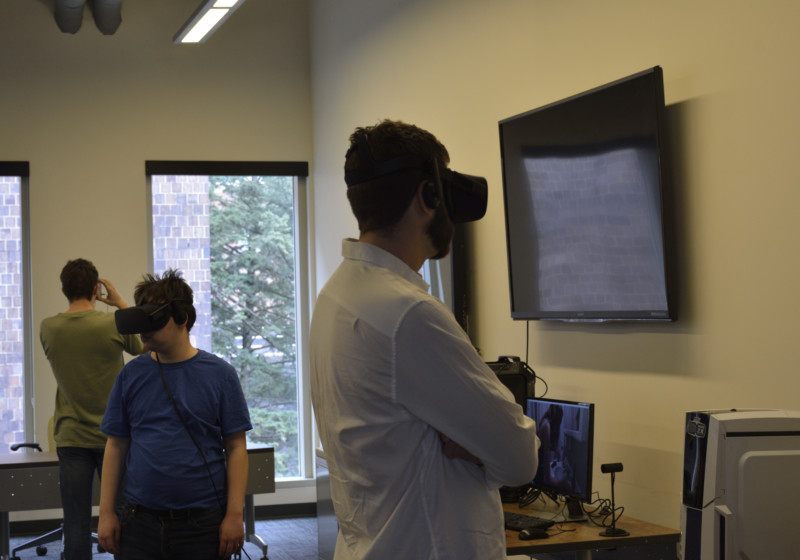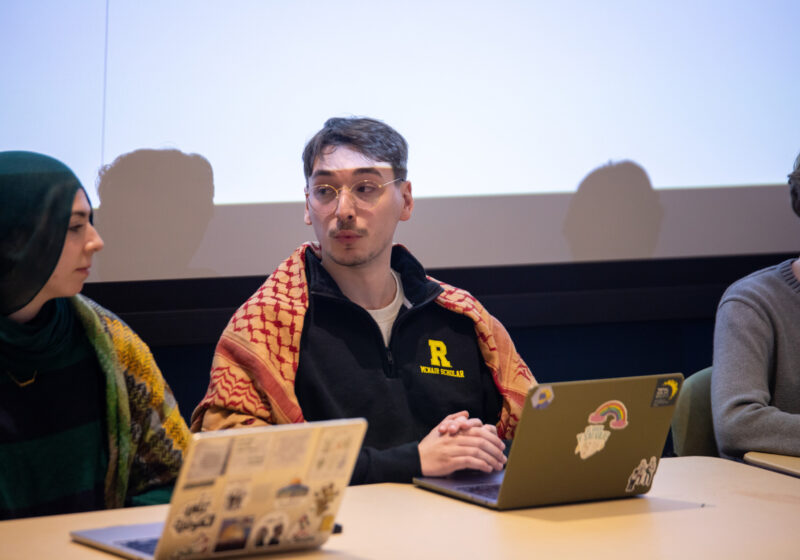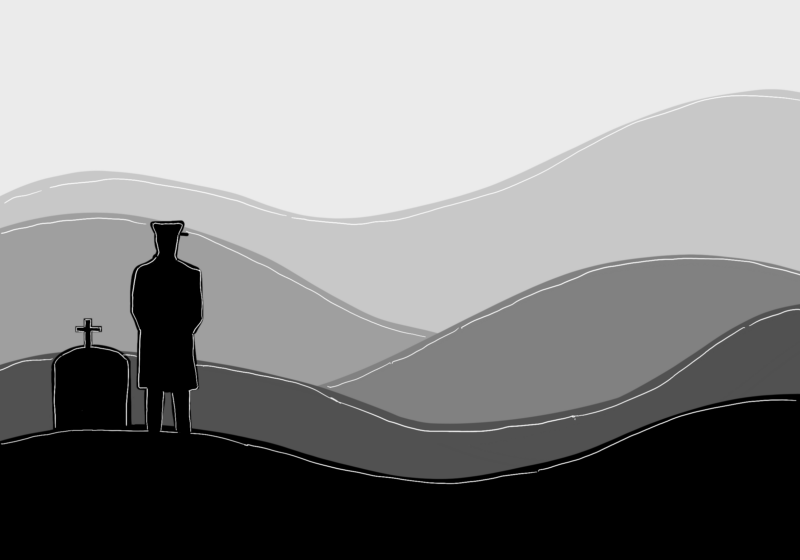Visitors slipped on headsets last Wednesday and found themselves transported into the college life of a young woman in “Through Her Eyes,” a student-made virtual reality film whose Rettner Hall premiere was accompanied by a women’s empowerment fair that day.
The film opens with the main character (and the viewer) waking up in her dorm room. A rectangular screen appears opposite the bed, displaying Instagram comments. (“You look like less of a bitch when you smile,” says one.)
Soon, the viewer is completely surrounded by screens like these, almost all of them demeaning. A Tinder inbox screen shows a message saying, “Let’s skip the part where I get to know you and go right to you sucking my dick.”
“Through Her Eyes” is the first film from R.I.D.E. (Realistic Immersive Digital Experience), a production company comprised of and founded by seniors Carolina Manent, Ryan Daley, and Skye Dole, who created the film as their capstone project.
Using headphones and virtual reality headsets, viewers experienced the film by looking around and observing their surroundings, which were pre-recorded around campus with a 360-degree camera (a camera capable of recording in all directions at once). What they saw was displayed on computer screens connected to the headsets.
Putting viewers, particularly male ones, through uncomfortable experiences was something the filmmakers had in mind.
“The whole point of the project was to bridge that knowledge gap of the female experience from women to men,” Daley explained.
Menent, who wrote the script with Dole, agreed, asking rhetorically, “If you don’t know what the experience is, how can you even start talking about it?”
But neither gender issues nor virtual reality were motivating ideas for the project: It was the immersive style.
“Carolina was the first one who actually pitched the idea of an immersive experience. That was pretty much how it started,” Daley said. “So with that idea, we kind of ideated and threw out a bunch of ideas until we realized we wanted to do something with virtual reality.”
The technology proved a challenge on a logistical level, however. Menent spoke about the difficulties that a 360 camera presented.
“In every scene, the beginning […] would be our face up close to the camera and then [we needed to] run, because we had to have our laptop connected with the camera at all times. So we were like always no less than five feet away. We were either behind a wall — you can even see in the scenes. I’m wearing the same scarf the whole time.”
Senior Sammir Lesage — who played an aggressive, leering student who interacts with the viewer at the Goergen Athletic Center and later reappears threateningly at a party in the penultimate sequence — struggled with the type of character he had to play.
“Going from who I am to this horrible type of human being was rough,” he said.
Menent believes that this roughness is what makes the film effective.
“We have a lot of our male viewers come out of it and be like, ‘Whoa. I did not realize that — I felt so small. I felt so….’ And then I think a lot of the female viewers were like, ‘Yeah. I’m glad you’re talking about it.’”
The film ends with the viewer placed on the Eastman Quad on a sunny day, surrounded by women, as the final stanza of Maya Angelou’s “Phenomenal Woman” is read in voiceover, leaving the viewer with the words: “It’s in the click of my heels, / The bend of my hair, / the palm of my hand, / The need for my care. / ‘Cause I am a woman / Phenomenally. / Phenomenal woman, / That’s me.”
The fair featured several booths run by with gender-related groups, like UR SEGway and The Womanist Club.



